Chinese Egg Cake 10 Minute Recipe for Perfect Softness
Ever wonder why your homemade cakes never turn out as soft and airy as those from Asian bakeries? The secret lies in the simplicity of a timeless favorite the Chinese Egg Cake. Known for its light texture and delicate sweetness, this classic dessert has been cherished in Chinese homes for generations. With just a few simple ingredients and 10 minutes of prep time, you can recreate that signature bakery-style sponge right in your own kitchen.
Studies show that the air trapped during egg whisking contributes up to 70% of a cake’s softness and volume. That’s why this Chinese Egg Cake recipe works so well no butter, milk, or baking powder needed. It’s all about technique and balance. Let’s dive into how you can master this perfectly soft cake every time.
Table of Contents
Ingredients List
Here’s everything you’ll need to make this fluffy and light Chinese Egg Cake:
Base Ingredients:
- 4 large eggs (room temperature for best results)
- ½ cup (100g) granulated sugar
- 1 cup (120g) cake flour
- 1 tablespoon vegetable oil (optional for extra moisture)
- 1 teaspoon vanilla extract
- A pinch of salt
Optional Add-Ons:
- Lemon zest for a subtle citrus note
- A few drops of almond or pandan extract for added aroma
- No cake flour? Mix all-purpose flour with 1 tablespoon of cornstarch for a similar texture
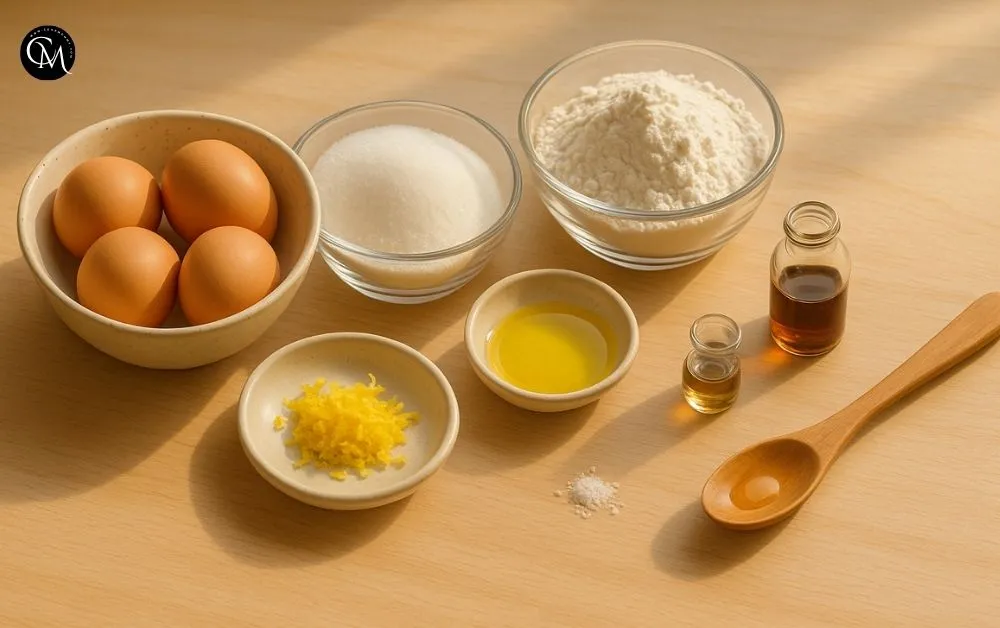
Tip: When whisking the eggs, look for a pale yellow, ribbon-like consistency that’s your signal to stop and gently fold in the flour. You’ll notice the aroma instantly reminds you of a fresh morning sponge from a bakery.
Timing
This recipe is designed for simplicity and speed ideal for busy schedules.
- Preparation Time: 10 minutes
- Baking Time: 25 minutes
- Total Time: 35 minutes
This Chinese Egg Cake takes about 20% less time to prepare than most sponge cake recipes, making it perfect for quick desserts or last-minute guests.
Step-by-Step Instructions
Step 1: Preheat and Prepare
Preheat your oven to 350°F (175°C). Line a 6–7 inch round or square baking pan with parchment paper and lightly grease the sides. This helps the cake release smoothly once baked.
Step 2: Whip the Eggs and Sugar
In a large mixing bowl, beat the eggs and sugar together using a hand or stand mixer. Start on medium speed, then increase to high for 5–7 minutes. The mixture should become pale, thick, and triple in volume, forming ribbons when lifted.
Pro Tip: This is the most important step. Properly aerated eggs create the light, cloud-like texture that defines the perfect Chinese Egg Cake.
Step 3: Fold in the Flour
Sift the cake flour into the egg mixture in three parts. Gently fold using a spatula, making circular motions from bottom to top. Be careful not to overmix preserving air in the batter keeps the cake soft and spongy.
Step 4: Add Vanilla and Oil
Pour in the vanilla extract and oil (if using). Fold gently until the mixture is smooth and uniform. The batter should feel airy and light.
Step 5: Bake to Perfection
Transfer the batter into the prepared pan and tap lightly on the counter to remove air bubbles. Bake for 25 minutes, or until a toothpick inserted into the center comes out clean. The top should be golden and slightly springy to the touch.
Step 6: Cool and Serve
Allow the cake to cool in the pan for about 5 minutes before transferring it to a wire rack. Once cooled, slice and enjoy the delicate, bouncy texture that makes this dessert so beloved.
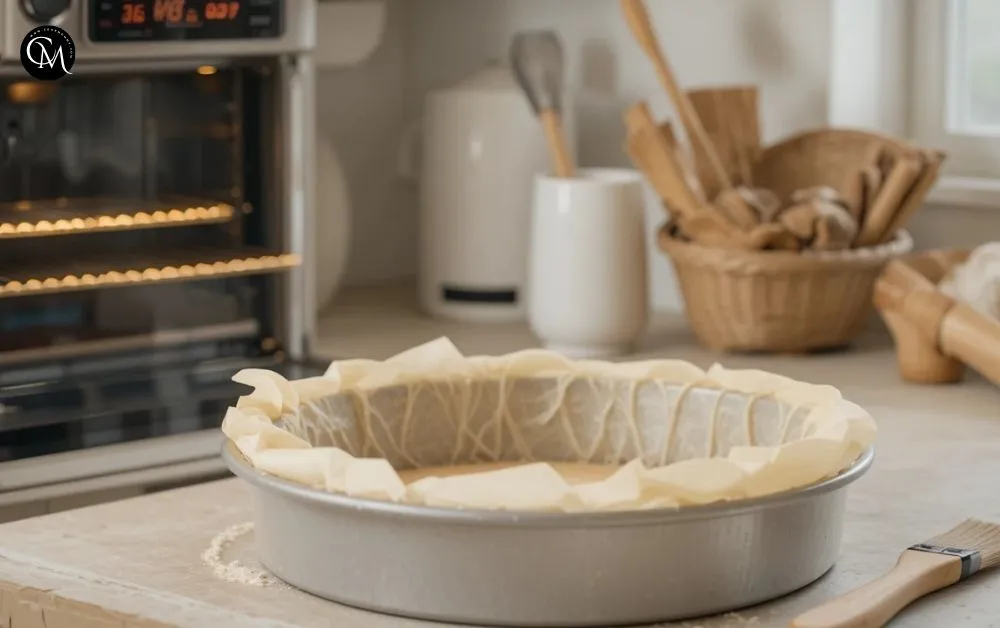
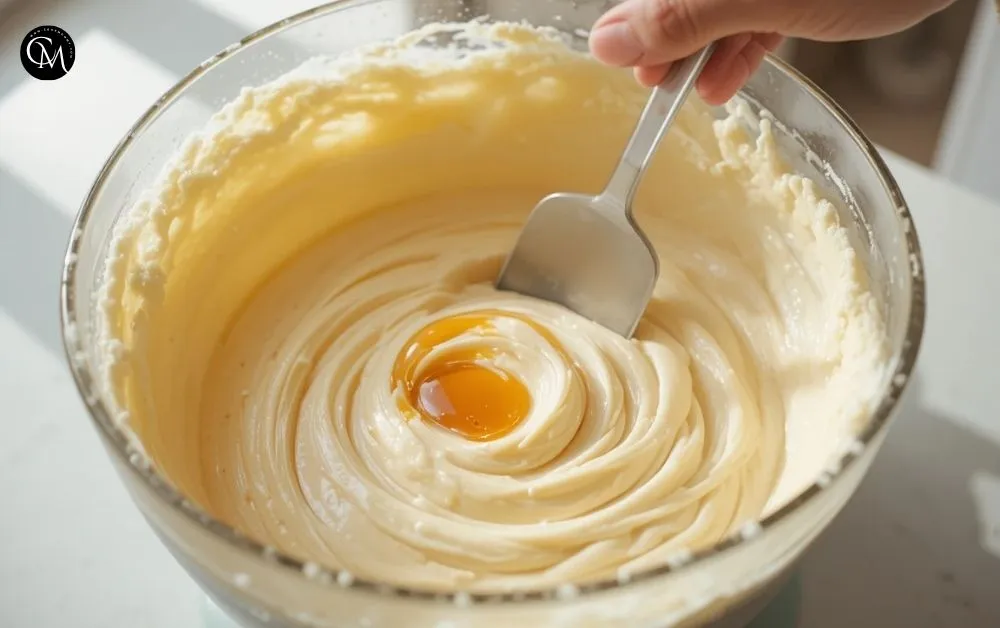
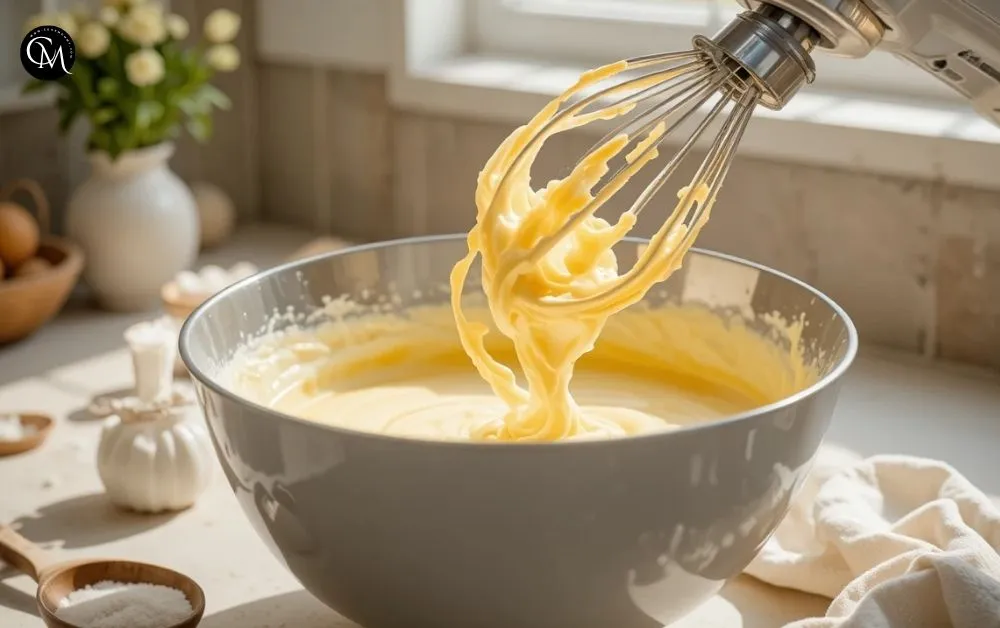
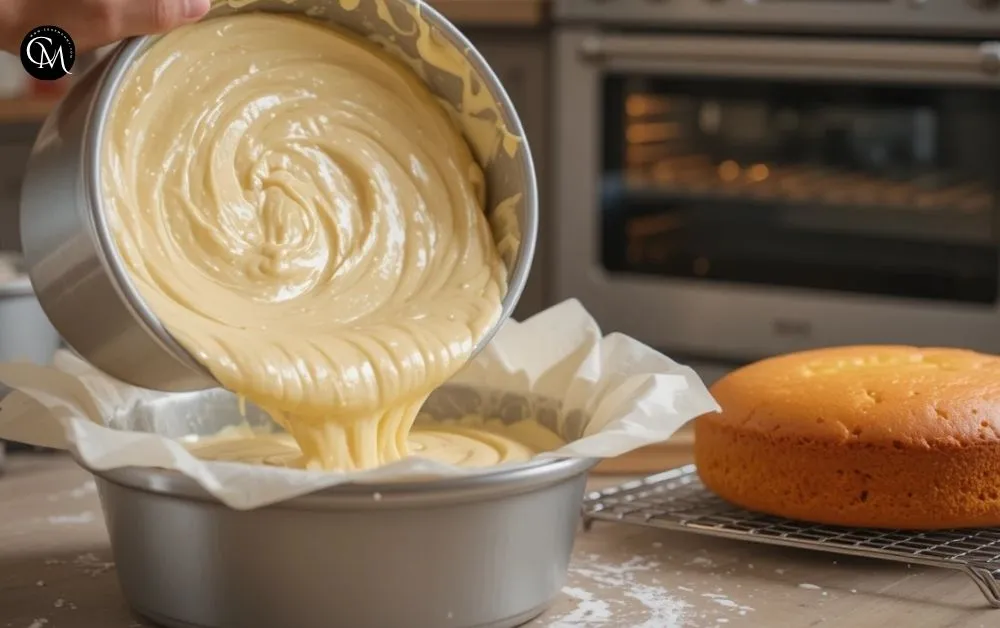
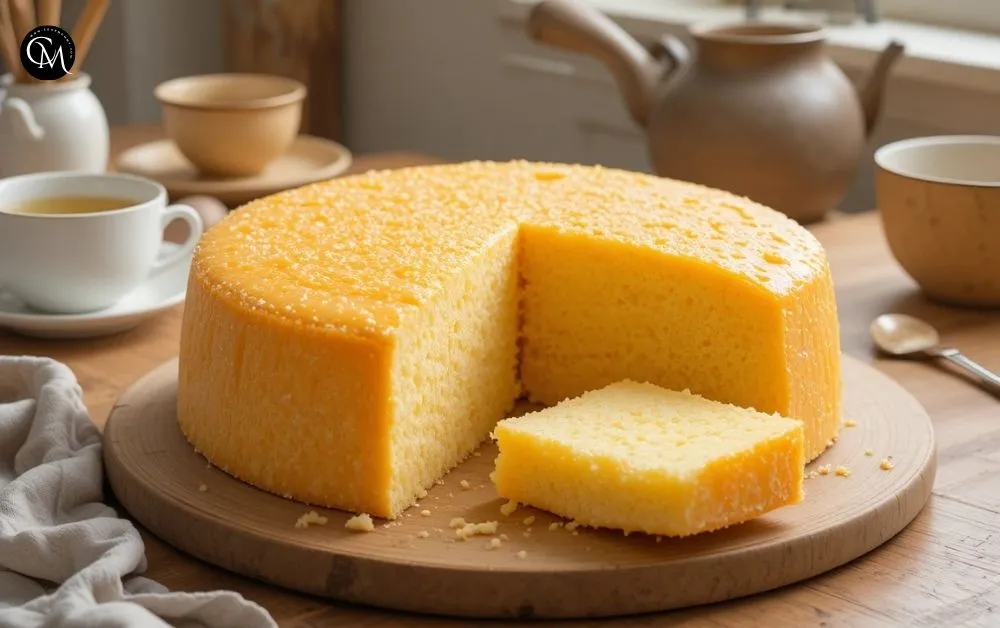
Nutritional Information
Approximate values per serving (based on 8 slices):
| Nutrient | Amount | % Daily Value* |
|---|---|---|
| Calories | 130 kcal | 6% |
| Protein | 4 g | 8% |
| Fat | 3 g | 4% |
| Carbohydrates | 22 g | 7% |
| Sugars | 12 g | — |
| Fiber | 0.5 g | 2% |
| Cholesterol | 60 mg | 20% |
| Sodium | 50 mg | 2% |
*Based on a 2,000-calorie diet.
The Chinese Egg Cake is naturally lower in fat and sugar compared to typical butter-based cakes, making it a lighter, guilt-free dessert option.
Healthier Alternatives
Want to make your Chinese Egg Cake even better for you? Try these simple swaps:
- Reduce sugar by 25% you’ll still keep plenty of sweetness from the eggs.
- Use whole wheat pastry flour for more fiber.
- Swap oil for applesauce to cut down on fat.
- Add chia or flax seeds for a boost of omega-3s.
- Make it gluten-free with rice or almond flour and an extra egg white for structure.
Each option maintains the cake’s signature fluffiness while enhancing its nutritional benefits.
Serving Suggestions
- Classic Style: Enjoy plain with a cup of green or jasmine tea.
- Modern Touch: Top with whipped cream and berries for a fresh twist.
- Breakfast Treat: Serve with honey or jam for a light morning snack.
- Celebration Cake: Layer two cakes with custard or fruit filling for special occasions.
Tip: Warm each slice for 10 seconds in the microwave it revives the softness and aroma instantly.
Common Mistakes to Avoid
Even simple recipes can go wrong. Here’s how to avoid the most common issues:
- Overbeating the eggs makes the cake dry. Stop once the batter turns pale and thick.
- Folding too aggressively knocks out air, resulting in a dense texture.
- Using cold eggs reduces volume; always use room temperature eggs.
- Incorrect pan size too large and the cake turns flat.
- Opening the oven too early can cause collapse; wait until at least 20 minutes in.
Tests show that overmixing can reduce cake volume by up to 30%, so handle the batter gently.
Storage Tips for the Chinese Egg Cake
To keep your Chinese Egg Cake soft and fresh:
- At Room Temperature: Store in an airtight container for up to 2 days.
- In the Fridge: Keeps well for 5 days reheat briefly before serving.
- In the Freezer: Wrap slices individually and freeze for up to 2 months. Thaw at room temperature or microwave for 15 seconds.
Baking the day before? Perfect the cake often becomes even moister after resting overnight.
Conclusion
In just 10 minutes of prep, you can create a Chinese Egg Cake that’s light, fluffy, and irresistibly soft a true celebration of simplicity and tradition. Give it a try, share your results in the comments, and subscribe for more easy, authentic recipes from around the world.
FAQs
Q1: Why did my Chinese Egg Cake turn dense?
You may have overmixed the batter or not whipped the eggs enough. Beat until ribbon-like and fold carefully.
Q2: Can I make it without a mixer?
Yes! It takes a bit more effort, but whisking by hand for about 10 minutes can achieve similar results.
Q3: What flour gives the best texture?
Cake flour is ideal, but you can make your own by mixing all-purpose flour with cornstarch.
Q4: Can I add matcha or chocolate?
Definitely! Add 1 tablespoon of matcha or cocoa powder when sifting the flour.
Q5: How can I prevent surface cracks?
Bake at a steady 350°F and resist opening the oven early. Consistent heat ensures an even rise.
Tried it before ?
There are no reviews yet. Be the first one to write one.

